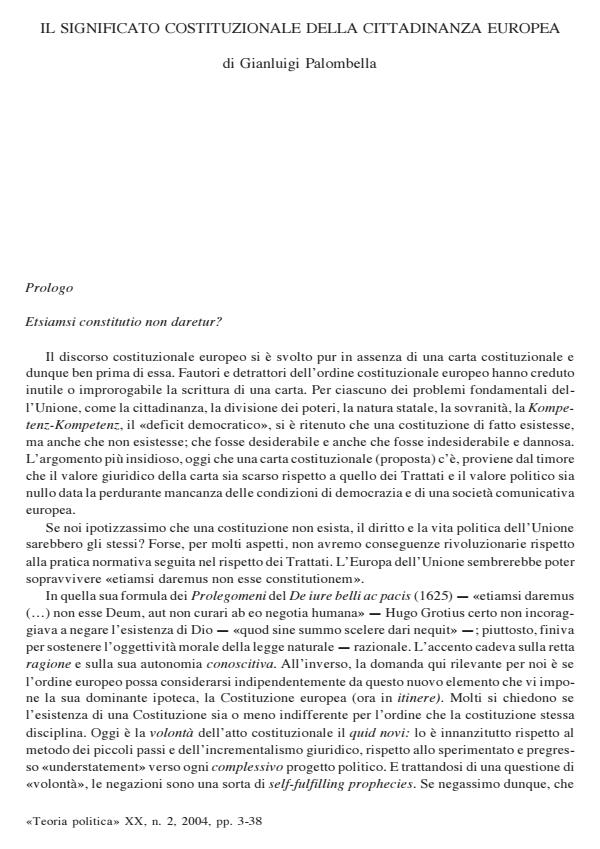Il significato costituzionale della cittadinanza europea
Journal title TEORIA POLITICA
Author/s Gianluigi Palombella
Publishing Year 2004 Issue 2004/2
Language Italian Pages 36 P. File size 197 KB
DOI
DOI is like a bar code for intellectual property: to have more infomation
click here
Below, you can see the article first page
If you want to buy this article in PDF format, you can do it, following the instructions to buy download credits

FrancoAngeli is member of Publishers International Linking Association, Inc (PILA), a not-for-profit association which run the CrossRef service enabling links to and from online scholarly content.
Whether the Constitution to be signed adds anything to the conception of citizenship worked out in the Maastricht and Amsterdam treaties is a question which has to be addressed. European (non cosmopolitan) organization is structured in such a way as to reflect the converging role of bodies accountable respectively ton the states and the «european» citizens. EU has now its own goals which require a reflexive awareness different from the one required for the mere regulation of the market: people can not be treated as mere clients of public policies. The nature of citizenship depends on premises of organizational nature (the existence of two sources of power), of socio-historical nature (the non individualistic character of its institutional goals, among which the union of peoples stands out), of procedural nature (the production of a common point of view), and political-legal nature (the function of power as linked to the conception of rights as goals).
Gianluigi Palombella, Il significato costituzionale della cittadinanza europea in "TEORIA POLITICA" 2/2004, pp , DOI: